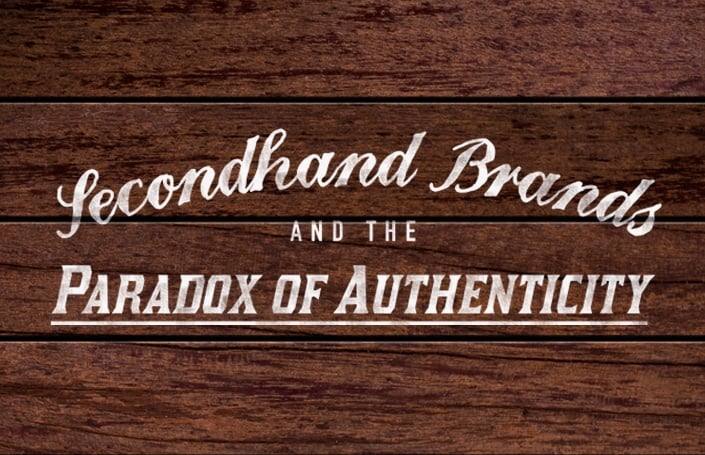Secondhand Brands and the Paradox of Authenticity

Imagine, for a moment, that you grew up hearing family lore about your great-grandfather and the workwear company that he founded in the heart of the Great Depression.
Now, imagine that you see the label that you recognize from the deepest reaches of your childhood emblazoned across the front of a store in Soho. You stumble in, dumbstruck, only to find that J.Crew has bought your family’s brand name and is using it to sell a line of trendy women’s clothing.
This is exactly what happened to Dan Nosowitz, who examines the paradox of authenticity and consumerism in his intriguing article for Buzzfeed. His great-grandfather, Julius Kivowitz, founded Madewell in 1937. When J.Crew’s now-CEO, Mickey Drexler, acquired Madewell’s intellectual property in 2004, he capitalized on the brand’s heritage to position the new Madewell as a brand with deep roots, even if those roots grew strong in an entirely different forest. As Nosowitz notes:
“Madewell as it stands today has almost nothing at all to do with the company founded by my great-grandfather almost 80 years ago. How many vintage labels out there have similar stories? How many corporations are out there rifling through the defunct brands of America’s past like a bin of used records, looking for something, anything, that will give them that soft Edison-bulb glow of authenticity?”
Shoppers crave that backstory, especially as tastes and priorities continue to evolve post-recession. Madewell hasn’t suffered from this authenticity disconnect, in any case, with 20 new store openings projected for fiscal 2014. Yet doesn’t this run completely counter to the very concept of authenticity? What does authenticity even mean and why does it matter?
The word/concept is a fancy way of saying that a brand is who it says it is. From a practical standpoint, there are many ways brands can connect in this way:
• Longevity and the backstory – companies have survived for a reason. Consumers love to hear the how and why.
• Being true to positive values – even newer brands (think Tom’s Shoes, Warby Parker, etc.) set forth a clear set of values. We believe that they care and choose to do business with them.
• Being true to customers – brands that make service the center (and deliver) like Zappo’s and Nordstrom earn a distinct advantage and seem more human. Another way to stay true to customers is to honor them, as Dove has done with the ‘Campaign for Real Beauty.’
Amid all this talk of authenticity, it might seem like any company without a storied legacy, an intriguing backstory, or an ironclad commitment to a cause is somehow at a disadvantage when it comes to building a successful brand.
Authenticity is just one potential component of providing a product that your customers want to buy. It’s also one that we’ve seen fall in and out of favor over time, as Dan Nosowitz’s Buzzfeed article concludes:
“Both of the companies named Madewell adhere to the way things were done in their respective times. We look at the past through glasses that bring into focus only what we want, and need, to see; they distort everything else. […] If Julius were alive, I think he’d be very impressed that a company called Madewell posted revenue of over $180 million in the fiscal year 2013. He would care not at all about whether it was authentic, or what the word ‘authentic’ even means.”
—
Annette Saggiomo, Senior Brand Strategist






